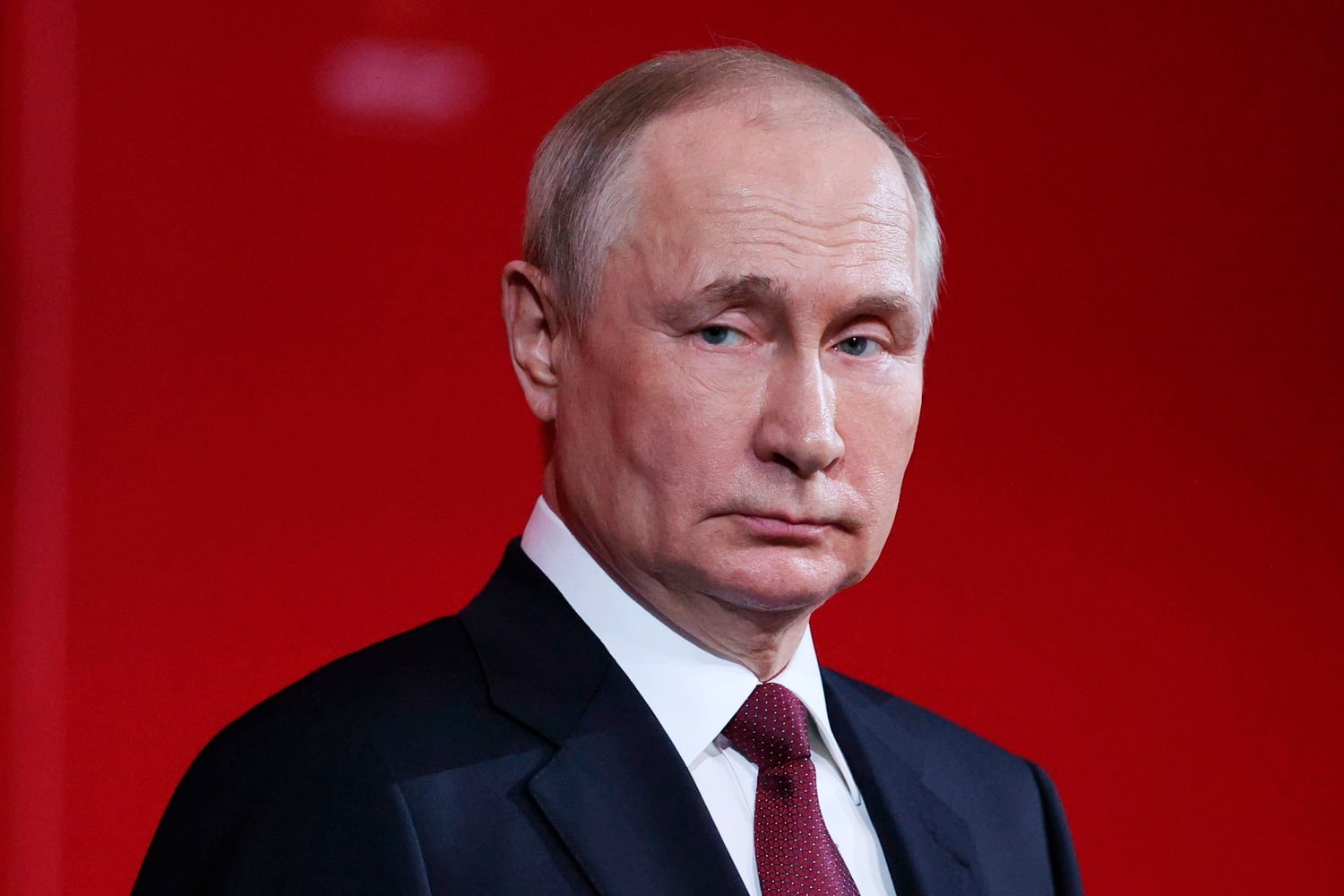Russia is actively exploiting America’s divisive discourse surrounding Israel’s offensive in Gaza to sow discord and undermine Washington’s global reputation, according to sources familiar with U.S. intelligence.
In its ongoing information warfare against the United States, Russia has recently intensified its focus on the Israel-Hamas conflict, aiming to exacerbate existing divisions in the West and depict Washington as complicit in the violence, the sources revealed.

Russian President Vladimir Putin (Credits: NBC News)
The Russian effort employs a range of tactics, including the use of artificial intelligence and fake social media accounts, a strategy long employed by Moscow. However, specific examples of Russian-generated bots on social media were not shared to protect U.S. intelligence-gathering methods.
Bret Schafer Characterized the Effort as a Chance for Russia to Undermine the West
Russia has consistently denied accusations of spreading disinformation abroad, and a spokesperson for the Russian Embassy did not immediately respond to requests for comment.
This campaign is just the latest example of Russia’s strategy to exploit political rifts in the United States and other NATO countries, according to independent researchers and sources familiar with the matter.
Bret Schafer, who monitors Russian propaganda at the German Marshall Fund of the United States, described the effort as an opportunity for Russia to undermine the West and divert attention from its invasion of Ukraine by portraying itself as a champion of the Palestinians.
Russian state-run media outlets like Sputnik have been actively participating in this campaign, disseminating narratives aimed at exacerbating tensions in the United States. For example, Sputnik recently highlighted pro-Palestinian protests on American college campuses, framing them as a struggle against oppressive government actions.
The Alliance for Securing Democracy reported a serious increase in posts on Facebook from Russian state media, pro-Russian commentators, and Russian diplomats in the repercussion of Hamas’ attack on Israel in October.

Putin (Credits: PBS)
These posts often peddle conspiracy theories involving Ukraine, alleging, for instance, the involvement of Ukrainian mercenaries in the conflict.
Russia’s disinformation efforts extend beyond the United States to Europe. France, for instance, accused a Russian-linked network of amplifying antisemitism by sharing images of Stars of David graffiti in Paris on social media platforms.
While it’s crucial not to overstate the impact of Russian propaganda on the Israel-Gaza debate, experts emphasize that these efforts are part of Russia’s broader strategy to undermine democratic institutions and sow discord in Western democracies.
They warn against attributing all divisions solely to foreign influence, emphasizing the need to address domestic challenges as well.























